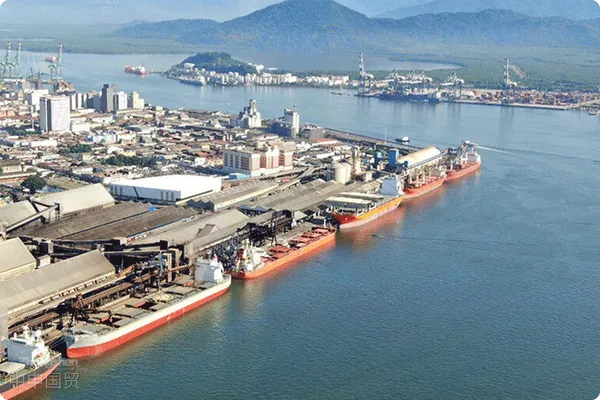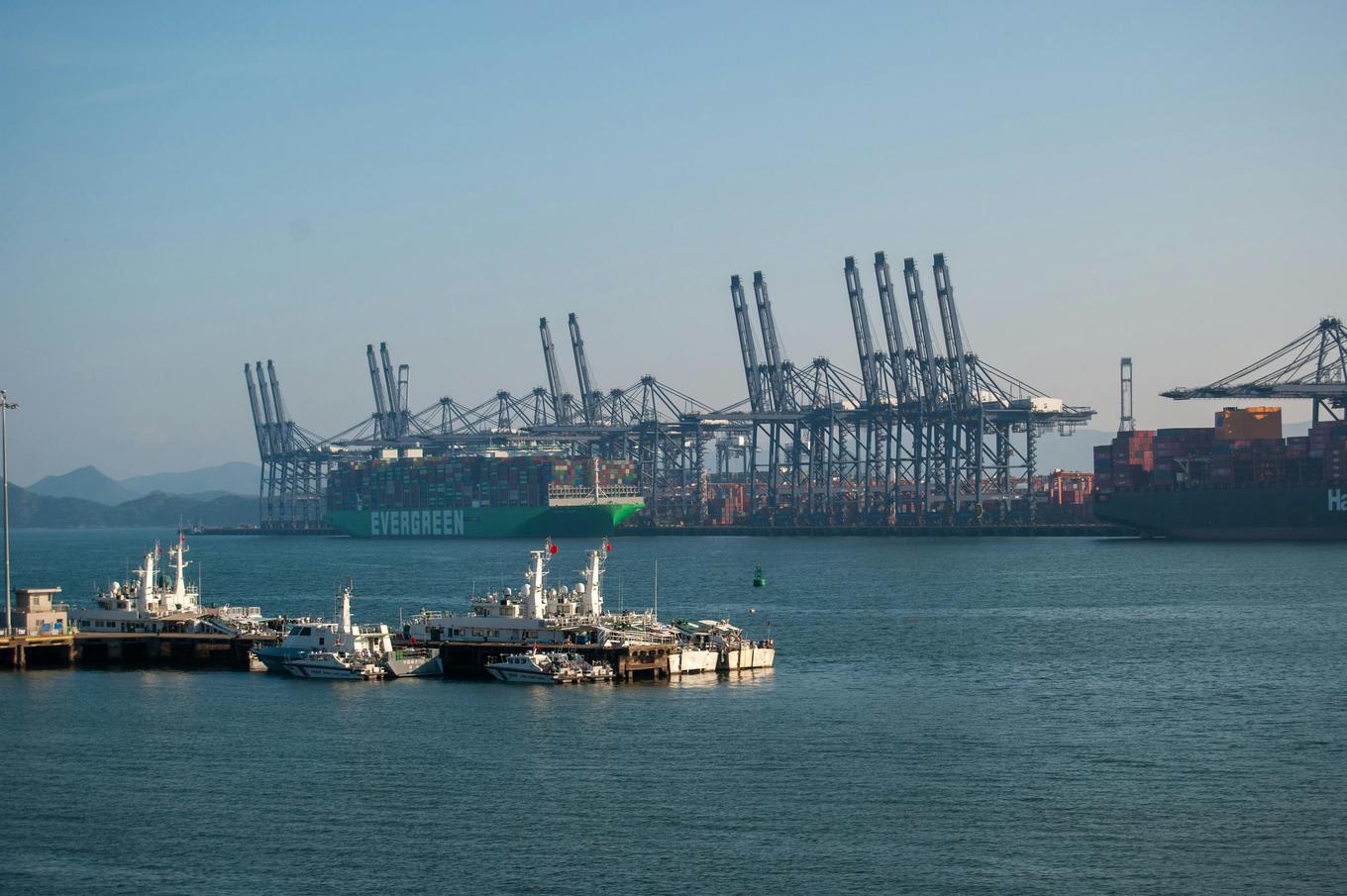- Shanghai Zhongshen International Trade Co., Ltd. - Two decades of trade agency expertise.
- Service Hotline: 139 1787 2118

Introduction
In today's increasingly prosperous global trade, importing swimwear from Germany holds significant importance for both businesses looking to expand their product categories and consumers seeking high-quality products. However, the import process involves multiple steps, from document handling to logistics arrangements, and then to...FX Settlement AgencyAs well as responding to the international trade situation, every step must be handled with caution. This article will focus on the topic of swimwear imports from Germany, providing you with a detailed analysis of the key points.
Professional Document Processing Capabilities
When importing swimwear from Germany, documentation processing is a crucial step. Firstly, a commercial invoice is essential, which must clearly specify key information such as the description, quantity, and value of the goods, serving as an important basis for customs valuation and taxation. The packing list should detail the types and quantities of goods in each package to facilitate customs inspection. The bill of lading, as proof of ownership of the goods and evidence of the transportation contract, directly affects whether the goods can be delivered smoothly.
In terms of document processing, our company possesses profound professional expertise. Our team members have undergone rigorous professional training and are well-versed in the varying document requirements of customs authorities across different countries. Taking the import of swimwear from Germany as an example, we proactively communicate with clients to ensure that the provided documentation is accurate and complies with the regulations of both German customs and the customs of the destination country, thereby avoiding delays or fines due to documentation issues. For instance, there was a case where a client imported a batch of specialty swimwear from Germany. Unaware of the specific labeling requirements for textiles in Germany, the client initially failed to include detailed label information on the commercial invoice. We promptly identified the issue and assisted the client in making the necessary corrections, ensuring the goods smoothly passed German customs inspection and arrived at the destination on time.
At the same time, we will conduct a meticulous review of all documents, ensuring not only consistency among them but also their alignment with the actual goods. For instance, the cargo description on the bill of lading must match that on the commercial invoice and packing list, as even minor discrepancies may raise concerns with customs.
Precise logistics arrangements
Logistics and transportation directly impact the timeliness and cost of goods. When importing swimwear from Germany, common transportation methods includeAir TransportationandMaritime TransportationAir freight is fast and suitable for goods with high timeliness requirements, but the cost is relatively high; sea shipping, on the other hand, has lower costs and is suitable for large-volume cargo transportation, but the transit time is longer.
For German-imported swimwear, if it's a new product launch with limited quantities, air freight may be the better option. We maintain long-term partnerships with several internationally renowned airlines, enabling us to secure more favorable freight rates. Additionally, we can assist clients in arranging expedited pickup and transshipment services. Before the cargo departs, we closely monitor flight schedules and maintain timely communication with airlines to ensure on-time loading. Upon arrival at the destination port, we can swiftly handle customs clearance procedures and arrange prompt delivery to the client's designated location.
For larger quantities of goods, sea freight is more cost-effective. We will select the appropriate sailing schedule based on the estimated shipping time of the goods. During the booking process, we take full account of the shipping company's reputation, the stability of the vessel, and the rationality of the route. For example, some shipping companies may frequently call at multiple ports on certain routes, leading to extended transit times. We strive to avoid such schedules to ensure the goods arrive as quickly as possible.
At the same time, during the sea freight process, we track the location of the goods in real time. Through the shipping company's official website or professional logistics tracking platforms, we promptly provide customers with updates on the cargo status. Additionally, we offer recommendations for cargo insurance services, selecting suitable insurance plans based on the value of the goods and transportation risks to ensure the safety of the goods during transit.
Russian Market: VTB Foreign Exchange Settlement Convenience
Although the current topic is German imported swimwear, if your business expands into the Russian market, our company has unique advantages in foreign exchange settlement. When conducting trade with Russia, the foreign exchange settlement process is often complex, involving numerous banking procedures and foreign exchange policies. However, our company maintains a long-term and stable cooperative relationship with Russia's VTB Bank.
Foreign exchange settlement, simply put, is the process of converting foreign currency obtained from export goods into domestic currency. In trade with Russia, settling foreign exchange through VTB Bank is relatively straightforward and efficient. Generally, after the goods are delivered and the relevant shipping documents are obtained, we assist clients in preparing the necessary documents for foreign exchange settlement, such as commercial invoices and bills of lading, which are then submitted to VTB Bank. The bank will convert the received foreign currency into RMB or other agreed currencies based on the foreign exchange market rate and disburse the funds to the client.
Compared to other banks, VTB Bank is more familiar with local Russian trade practices when handling foreign exchange settlement for trade with Russia, thereby reducing delays caused by document issues. For example, a client once exported a batch of swimwear to Russia. During the settlement process, VTB Bank leveraged its understanding of the Russian market to quickly review and approve the relevant documents, enabling the client to receive the settlement funds in a short time. This significantly improved the efficiency of capital turnover.
It is recommended to choose based on transportation distance and product characteristics:import and exportProcess and Solutions
If some of the swimwear imported from Germany needs to be re-exported to the Southeast Asian market, or if it is directly imported from Germany to Southeast Asia, there are specific requirements for the import and export process.
Import Process: First, before the goods arrive at the destination port in Southeast Asia, we need to prepare the necessary documents for import declaration in advance. In addition to the previously mentioned commercial invoice, packing list, and bill of lading, other documents may also be required.It is recommended to verify through the following methods:Books, etc. The requirements for certificates of origin vary among different Southeast Asian countries. For instance, some nations may require specific formats like FORM E to enjoy particular tariff preferential policies. We will assist clients in preparing the corresponding certificates in accordance with the regulations of each country.
After the goods arrive at the port, we will promptly declare them to the local customs. Customs will inspect the goods, primarily checking whether the quantity, quality, declared value, etc., match the documentation. During the inspection process, if any issues are found—such as discrepancies between the goods and the declaration—there may be risks of fines or even cargo detention. Therefore, we will conduct detailed checks on the goods in advance to ensure the accuracy of the declared information.
Once the inspection is passed, customs will levy corresponding tariffs, value-added taxes, and other fees based on the goods' tariff classification code. We will familiarize ourselves with the local tariff policies in advance to provide clients with accurate tax estimates, avoiding additional costs due to tax-related issues.
Solutions: For the Southeast Asian market, we have established a localized service team. These team members are familiar with local trade regulations, cultural customs, and business environments. During the import process, they can effectively communicate with local customs, freight forwarders, and other relevant parties in a timely manner. For example, in some Southeast Asian countries, customs efficiency may be relatively low, but our localized team can expedite cargo clearance through established communication channels. Additionally, we have established partnerships with local warehousing and logistics companies, enabling us to provide customers with one-stop services such as warehousing and distribution, ensuring that goods smoothly reach the end customers.
Challenges and Opportunities in the Current International Trade Landscape
The current international trade situation is complex and ever-changing, presenting both numerous challenges and opportunities for importing swimwear from Germany.
Challenges: On one hand, trade protectionism is on the rise, with countries introducing various trade restrictions. For instance, some nations may raise import tariffs, increasing the cost of imported goods and reducing their market competitiveness. Trade frictions between Germany and other countries could also lead to more cumbersome customs procedures, requiring additional documentation. On the other hand, the global pandemic continues to exert its impact, severely disrupting logistics and transportation. Port congestion and flight cancellations occur frequently, not only prolonging shipping times but also potentially causing a significant surge in transportation costs. For example, recent pandemic control measures at certain ports have drastically reduced cargo handling efficiency, leading to massive backlogs and subsequent spikes in freight rates.
Opportunities: Despite facing challenges, there are also numerous opportunities. With the gradual recovery of the global economy, consumer demand for high-quality swimwear continues to grow. As a manufacturing powerhouse, Germany holds certain advantages in the quality and design of its swimwear, presenting vast market potential. Meanwhile, the rapid development of digital trade has also facilitated import operations. Through e-commerce platforms, importers can communicate and conduct transactions with German suppliers more conveniently, expanding sales channels. Additionally, to promote economic growth, countries are continuously optimizing trade policies, simplifying customs procedures, and enhancing trade facilitation, which helps us carry out import operations more efficiently.
Product certification services
Importing swimwear from Germany involves a crucial step that cannot be overlooked: product certification. In the EU market, swimwear may need to comply with relevant textile safety standards, such as the REACH Regulation, which imposes strict rules on the use and restriction of chemicals to ensure the product is harmless to consumer health and the environment. For exports to other regions, such as certain Southeast Asian countries, there may also be specific product standards and certification requirements.
Although our company does not directly provide certification services, we will inform clients in detail about the required certifications and assist them in the application process. Based on the market demands of different countries, we will compile a detailed certification list for clients, including the names of certifications, applicable scopes, and application procedures. At the same time, leveraging our industry resources, we will recommend reliable certification bodies to clients and assist them in communicating with these agencies to ensure a smooth certification process.
For example, we once had a client importing swimwear from Germany to Thailand. We promptly informed the client about Thailand’s certification requirements for textiles and connected them with a local professional certification agency. Ultimately, we helped the client successfully obtain the certification, enabling the goods to be smoothly sold in the Thai market.
Conclusion
Importing swimwear from Germany requires professional knowledge and extensive experience in document processing, logistics arrangements, foreign exchange settlement, as well as dealing with international trade situations and product certifications. Our company, with its expertise in import...Export RepresentationProfessional expertise in the service sector, particularly deep-rooted experience in document processing and logistics services, along with the convenience of VTB settlement for the Russian market and familiarity with import-export procedures in Southeast Asia, enables us to provide clients with comprehensive, one-stop solutions. In the current complex and ever-changing international trade environment, we will work hand in hand with our clients to seize opportunities, tackle challenges, and ensure the smooth operation of import businesses.
Related Recommendations
? 2025. All Rights Reserved. Shanghai ICP No. 2023007705-2  PSB Record: Shanghai No.31011502009912
PSB Record: Shanghai No.31011502009912










